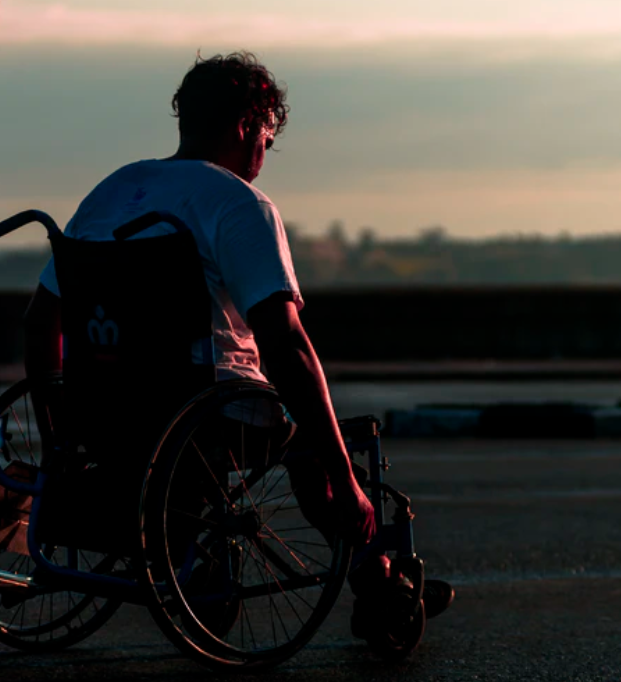If you find yourself feeling survivor’s guilt after the burial services, know that you are not alone. Usually, people who survive a life-threatening situation feel this type of guilt. It is a kind of grief that makes you feel as if you have done something wrong because you’ve been spared while others are not as fortunate. Learn more about this concept so you can prep yourself emotionally and mentally in case these ill feelings dominate your heart and mind.
The Concept of Survivor’s Guilt
Researchers say that survivor’s guilt is a symptom of post-traumatic stress disorder (PTSD). However, not everyone with PTSD experiences these feelings. This guilt is commonly experienced by the following groups:
- War veterans
- Cancer survivors
- Those who survive natural disasters
- People in a car accident where some perish
Signs of survivor’s guilt may include flashbacks of the events, including both dreams and obsessive thoughts in the daytime. If you experience this, you may also have trouble sleeping, feel irritable, find yourself depressed, or experience an extreme lack of motivation.
The Things You Can Do To Ease the Guilt
Remember, though survivor’s guilt is fairly common, it is not healthy at all. Unlike normal grief that you feel after memorials, this situation is more complex. It does not allow you to effectively process the unexpected loss in a healthy manner. If you are struggling with this, you must take steps towards healing yourself. Take a look at the following suggestions:
-
Find Ways to Accept the Situation
You must learn to accept that you will not have the answers to all your questions. People who deal with survivor’s guilt ask a lot of whys. You may ask:
- Why did I survive?
- Why did this happen to me or us?
- Why were they not saved?
- What could I have done differently?
If questions like these keep you awake at night, you are only hurting yourself. Hence, you must work hard to accept that you may not find answers to these questions. Repetitively asking them will not get you anywhere. The sooner you accept things, the faster you can heal. It is normal to respond to loss with grief. However, you cannot move towards healing if you don’t free yourself from this burden.
-
Figure Out a Misplaced Sense of Responsibility
When you feel this kind of guilt, it is rooted in irrational thoughts. You may continually replay actions in your head. And you try to find things that you could have done differently. Remember to be kind to yourself. Notably, there’s a huge disconnect and difference between what actually transpired versus what you remember.
Usually, in these instances, there is really little that you can do to change the outcome. That’s why there’s a concept called fate. In reality, you can never really know the possible outcome of any given situation. For this reason, releasing yourself from this misplaced sense of responsibility helps with healing.
-
Stop Burying Emotions
Should you experience guilt feelings, it can be tempting to bury emotions so you don’t have to face them. However, this is a mere band-aid solution that only addresses the problem short term. As the days go by, your emotions will find their way to the surface and unleash their full force.
Hence, giving yourself a chance to feel plays a vital role in the grief process. Whether you feel sadness, guilt, shame, loss, confusion, or even anger, give yourself time to bravely embrace it all. It would help to talk to a confidant, especially when heavy emotions strike. The sooner you deal with them, the faster you can move on.
-
Find Things That Encourage Positivity
Though survivors are alive and well, they often feel shameful. As such, it can be common to feel bad when experiencing happy moments because others who went to the afterlife don’t receive the same opportunity.
You must remember that the person who went ahead will want you to live a happy life. If things were reversed, you would want the same for them. Thus, you must grant yourself the same compassion. After all, no one wants to live with the burden of guilt forever.
The Final Wrap Up
If you’ve done everything above and you still struggle with survivor’s guilt, it would be helpful to seek professional help. Grief counselors and therapists can set you on the road to recovery. Keep in mind, your feelings will not go away overnight. That’s why establishing a relationship with a therapist or someone you trust will go a long way in helping you recover.
No matter how you feel right now, know that you are never alone. Reach out to us if you need a listening ear. Our death-care experts can help you connect with support groups and professionals so you can find your footing.


